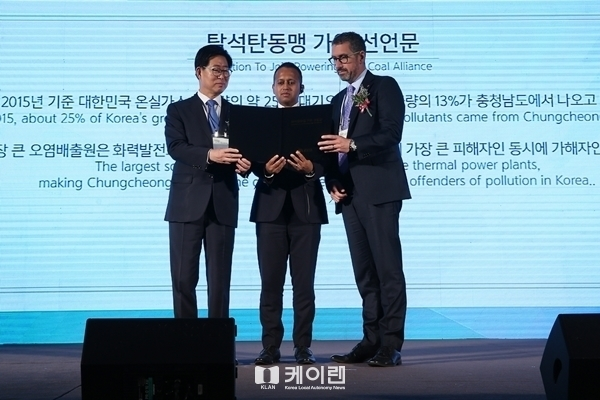Last week saw an historic announcement from the South Korean province of Chungcheongnam-do (or Chungnam). It declared it is joining the Powering Past Coal Alliance (PPCA) and committing to phasing out coal while investing in energy transition. The PPCA is an alliance – launched by Canada and the UK – of countries, provinces, companies and investors who have pledged to retiring coal power plants and supporting clean power generation. Chungnam is the first Asian jurisdiction to announce a coal phase-out and join the PPCA. And it certainly won't be the last.
Chungnam, slightly larger than Prince Edward Island, has 18 GW of coal-fired power plants. That’s around half of South Korea’s coal capacity and nearly twice Canada’s 9.5 GW, of which Alberta has the majority (6.3 GW). Chungnam accounts for approximately 25 per cent of Korea’s national greenhouse emissions and 13.2 per cent of air pollutants, the largest sources of which are coal-fired power plants.
The residents of Chungnam know the impacts from coal well, and experience limited economic benefits from living with the plants. Death from respiratory disease in the province is 1.5 times higher than the national figure. There is significant damage to the fishing industry due to coolants released into the sea and agricultural crops are impacted by coal dust. As Chungnam's Declaration of Joining the Powering Past Coal Alliance states, “Chungcheongnam-do [is] one of the biggest victims and offenders of pollution in Korea.”
However, in Korea, provincial governments have limited means to control what kind of power plants are sited and operated within their boundaries. They have no authority over issuing access to transmission lines and the power market exceeding for all but the smallest generators. In many cases, land or construction permitting authority for large scale plants is preempted by the central government, pursuant the so called “Power Plant Bulldozer Act.” The price of coal power is also highly subsidized with generous capacity payments or profit guarantee schemes, most of which is a legacy of the days economic development was led by the highly centralized national government. TheAir Environment Protection Act is the province’s only practical means to regulate coal power plants, and the Province has been sufficiently using this tool. The Act allows local governments to introduce air pollutant emission standards stronger than national standards, if necessary to meet local ambient air quality standards. In 2017, Chungnam became the first province in Korea to use this authority by introducing the strongest air pollution standards for existing coal power plants in Korea, and this shows how genuine Chungnam’s willingness to phase out coal is.
The devastating impacts of coal are felt all around Asia, where coal plants face opposition from local residents and are in fact more expensive than cleaner alternatives. However, just like Chungnam, many jurisdictions suffer from systemic issues that make change very difficult. The coal plants are often kept artificially cost-competitive through subsidy structures and favourable contracts. Regional governments in most cases have no authority to intervene in such arrangements. Land permiting or air regulation authority may also belong to the central government.
Chungnam, despite its limited authority, is committing to take action to start early retirements of coal units and pushing the Korean Government to follow. Specifically, Chungnam’s governor has committed to reduce the lifespan of coal plants within the province to 25 years, which will lead to the closure of 14 coal power plants by 2026.

Levelized cost of electricity, renewable vs coal power, South Korea
Chungnam’s pledge is the first official commitment to phase out coal in Asia. But it is part of a larger trend. In China for example, generation from coal has already plateaued, and coal capacity is expected to decline by 30-50% by 2050, while renewable capacity is projected to increase by 50-70%. Recent analysis by Carbon Tracker shows that Chinese coal plants are operating for less than 50% of the time, and that by 2021 it will be cheaper to build new wind plants than run existing coal plants.
Chungnam's commitment directly challenges the Western myth of rising coal in Asia and demonstrates the poor economics and local opposition coal faces there. At the same time, it sets a great precedent for its neighbours to follow.
Joojin Kim serves as the Managing Director of Solutions For Our Climate, a South Korea-based non-profit organization advocating for stronger climate and air policies. He is an attorney-at-law on the Korean and Illinois bars.









